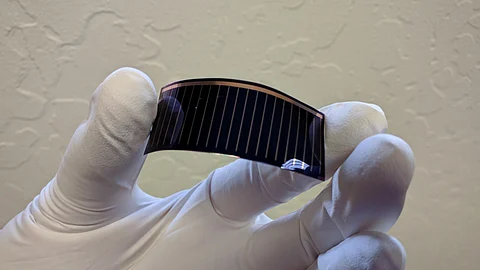

Alta Devices has achieved 29.1% power conversion efficiency for its single junction GaAs solar cell technology, which has caught the attention of US National Aeronautics and Space Administration (NASA). NASA is now testing Alta Devices' solar technology at the International Space Station (ISS) for its future low-earth orbit missions, including powering CubeSats.
NASA selected Alta Devices to participate in the Materials International Space Station Experiment (MISSE-X) flight investigation on board the NG CRS-10 mission to evaluate new solar cell and package technologies in support of future NASA missions requiring solar cells with high efficiency, high packing density, and very low mass.
On November 17, 2018, NASA took its MISSE sample carrier, integrated with an array of 9 Alta Devices solar cells with innovative packaging materials, to the ISS by a NG-10 Antares rocket. These solar cells will be installed into a zenith-facing position on the station in the coming weeks. After one year of exposure, the cells will be returned to NASA and Alta Devices for evaluation to assess if and how they were affected by their on-orbit exposure. The outcome will enable requisite modifications to enhance accuracy of prediction related to solar cell and package performance in future, longer missions.
"The High Efficiency, Low-Mass Solar Cell Systems experiment exposes candidate solar cells to the space environment. In addition, thin polymeric films, developed as cover slide materials for these solar cells, are exposed as separate samples, to measure atomic oxygen erosion yield and transmission changes due to ultraviolet radiation. The test results will be especially important for the design of small but highly capable spacecraft needed to explore our solar system," said NASA scientists.
Alta Devices' 29.1% efficiency was certified by Germany's Fraunhofer ISE CalLab. The US company, owned by China' Hanergy, claims this is its 13th cell or module solar efficiency world record.
In July 2018, Alta Devices reached 28.9% conversion efficiency for a single junction GaAs module (see Hanergy: 28.9% GaAs Module Efficiency Record). Before that, in February 2018, Alta Devices got Fraunhofer ISE CalLab PV modules certification for achieving 25.1% conversion efficiency on its GaAs technology module (see Hanergy Record Efficiencies For CIGS & GaAs).
